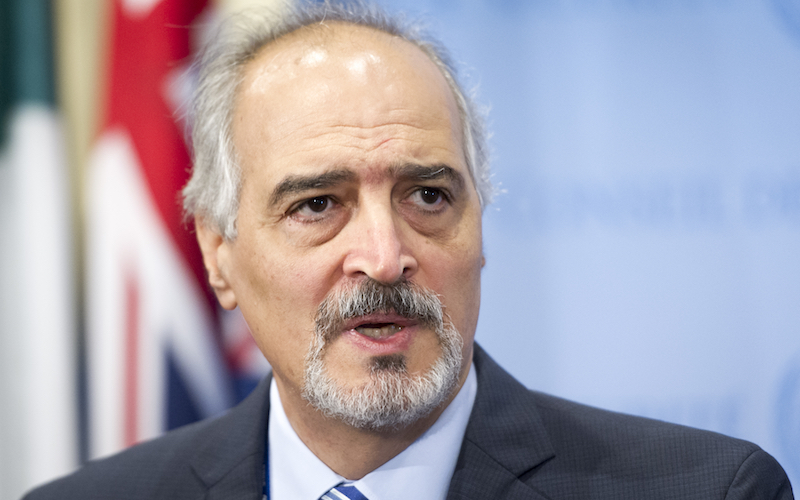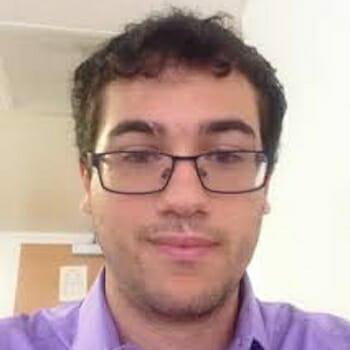
Syrian Peace Talks Are Underway in Kazakhstan: The Recipe for a Political Solution?
Peace talks between the Assad government and the opposition groups have kicked off in Kazakhstan’s capital Astana and will include the United States, Russia, Turkey, and Iran. This could be a significant breakthrough if all actors agree to make progress on the continuing conflict in Syria. There is an air of anticipation as we await the ground rules for the dialogue. What is also surprising is that the leader of the most influential opposition group, Jaysh al-Islam, Mohammed Alloush, sat opposite at the same table as their rival, the Assad government. It is surprising to see a leader of an opposition group show up to the negotiations and this is a breakthrough. Many reporters don’t know exactly what format is going to take place or whether the actors will talk directly to each other or through mediators, but we can say that the negotiations are bound to be very tough and it will not be easy to find a resolution to stop the bloodshed.
It can be seen as a breakthrough to have a leader of the armed opposition forces sitting opposite the Assad government at the same table. The organizers of the negotiations have seen the meetings as paramount to keeping tensions low and privately speak through closed doors. One of the contentious issues for these meetings has been Assad. There are some changing attitudes. For example, Turkey has said that no progress will be made in Syria without Assad and let’s not forget that there have been many world leaders who simply refused to negotiate with the Syrian government, but they have lost their positions now. Some of these leaders include Hillary Clinton, David Cameron, Barack Obama, John Kerry, and Samantha Power.
The peace talks are due to take place in Astana after six years of continued fighting in the already failed state. This will mark the first time that the governments and the opposition forces will talk directly about the current situation thanks to the brokered talks that were agreed to in Moscow by Russia, Iran, and Turkey.
The meetings in Kazakhstan could be a serious breakthrough for all the actors involved in the talks. But to have opposition groups on the same table as everyone else is quite surprising and this could be the first time that we some progress could made on finding a resolution that works for everyone. The road to Geneva still has a long way to go, but this is a start to eliminating radical Islamic terrorism that is a threat to the world. To see opposition groups negotiating on a political solution is a huge deal, but the most important issue is also the will of the Syrian people. What do the Syrian people want? The Syrian people want peace and an end to the bloodshed of many innocent civilians. The possible agreement that could be signed in Astana, maybe a ceasefire agreement, we don’t know yet, but people need to be held responsible for the agreement. If all actors can work through a dialogue towards a political solution, there could be a reduction of the bloodshed. Let’s keep our fingers crossed.
For Better or Worse?
The goals of these talks are modest at this point, and the actors of these negotiations are building on the ceasefire that was ratified at the end of December of last year. Originally, the main objective of these talks was to secure the ceasefire that was signed by the opposition and the government in the end of December, but the Russians and the Turks have consistently tried to start a political process. At this point, six years into the Syria conflict, the opposition wants to negotiate on securing the ceasefire that can end the bloodshed of so many innocent Syrians especially women and children.
Many world leaders have said that the fate of Syria lies with the Syrian people. Yet, foreign powers have grasped a stronghold and funded a war in Syria. Now, these foreign powers, especially, Russia, Turkey, and Iran with opposition forces such as Jaysh al-Islam are organizing talks to end the conflict once and for all. The foreign powers have organized talks in an unusual venue in Astana that is very different from Geneva. It is also unusual that the United States and the United Nations are sidelined from the talks so this gives the troika alliance an opportunity to reach a framework in Astana that can lead to more negotiations in Geneva with the western powers.
For Russia, the Syrian conflict cannot drag on any longer. Russia wants to keep its foothold in Syria, and possibly in other parts of the Middle East. To achieve this is very important for Russia to expand its support not only to support Shias and Alawites, but also to build bridges with Sunnis. Nobody will expect any kind of political breakthrough, but Russia would like to speak directly to parts of the Syrian opposition to try to recruit them and sign a ceasefire that calls for a neutral position and maybe with Russian support, will go against other parts of the Jihadi opposition.
The Aleppo breakthrough for the Syrian army is significant when it comes to this ongoing conflict. Russia’s sphere of influence in the region has been through working with Turkey and Iran on the negotiations. The strategy the troika alliance might create is that Iran can put pressure on the Assad regime while the Turks can put pressure on the opposition forces to come to a consolidated framework. There might not be any political settlement, there might be a truce, but unfortunately, we might see new tensions on the ground between the Syrian army and the opposition forces and this has actually been going on for the past few days as Astana’s negotiations were being prepared. We have also seen tensions within Ansar al-Sham and other militant groups such as Fatah al-Sham, the former Jabat al-Nusra group. We could possibly see fighting from within different opposition groups while the Syrian government may see some peace and stability under Russian protection.
A Serious Effort?
The Astana talks are probably the most serious effort throughout this six-year conflict for many reasons. Firstly, this armed conflict is not between the two most influential superpowers in the region, the United States and Russia which would result in a catastrophic scenario. Secondly, the troika alliance already has boots on the ground, and these powers seem to agree that Turkey and Russia, for example, seem to be keen on bringing this conflict to an end because the conflict is not serving their own interests. For Ankara, Syria has been a threat to its national security and even its unity by having ISIL bombing towns along its border every day, and the Kurdish problem is significant since they want an autonomous state. The Russians on the other hand, have reached their limits. Aleppo is the biggest city that they could liberate and there is not really a major objective for Russia to continue to fight this conflict. This is why the Astana talks are important to the Russians. Also, Russia can become a peacemaker in the region.
Iran right now is trying to transform the bilateral business between Russia and Turkey to create trilateral talks by including and presenting itself as a part of the solution because it seemed very much as part of the problem at least from the side of the Syrian opposition. All in all, the troika alliance is trying to find a solution, and we will see if the Trump administration will support this. Russia will most likely want to distance itself from Iran right now. There have been consistent problems between Moscow and Tehran but solutions have been found. Russia does not necessarily want to be seen as the champion of the Shias in the Middle East, it wants to be seen as the champion for stability and provide equal support for Sunni and Shias. For Russia, moving in the direction of Turkey and even Egypt, if possible, as well as the Gulf states is strategically very important for a long-term strategic presence if not even dominance in the entire region. Keeping a couple of bases in Syria is also very important.
The Trump Factor
The Trump Administration could be helpful if Russia and the United States can work together to form an anti-ISIL coalition. This would do wonders for the conflict and could bring everyone on board because all parties oppose ISIL Turkey put pressure on the Syrian opposition to put in a quid pro quo including a possible battlefield alliance with Russia, and the US could put pressure on members of the opposition in order to work with Russia.
From a Russian point of view, the American administration has a very important role to play. The United States has been bombarding Sunni areas for six years and the United States, at this point, needs a new approach to combating ISIL. The United States has played a hand, along with Russia, in the massive destruction in Eastern Aleppo and elsewhere.
A War of Proxies
The Syria conflict must also be resolved by the Syrian people themselves. This conflict is basically a war of proxies. Outside powers like Russia, Iran, Turkey, the United States, United Kingdom, and the Gulf states have been supporting the local proxies since the war began. There will be no consensus over the Syrian conflict unless there is agreement among the foreign powers. The rapprochement between Russia and Turkey is reasonable because it sets the stage for a solution in Syria and can reduce radical Islamist terrorism and pave the road to a final settlement in Geneva for the future.
Unfortunately, the Syrian people have had very little say in the conflict which is taking place on their land. ISIL and Fatah al-Sham have not been included in these talks, and the truce in Astana is still going to create more conflict within the Syrian opposition. Why has the refugee issue not come up? How about discussing a framework with international observers like the United Nations, humanitarian organizations of returning massive numbers of people to their homes? Let’s talk about the issues that matter! The Syrian government is not suffering from bombing and fighting. It is the innocent Syrian people that are suffering from the selling of weapons to proxies and rebels, and the trillions of dollars that have been spent to fight this conflict.
Rebuilding Syria is a very serious matter. This obviously involves a lot of foreign donors and the troika alliance cannot really provide a sufficient amount of aid so this could mean that the incredibly wealthy Gulf States, the European Union, and even the United States should join in the rebuilding of Syria after the jihadists are pushed out. This will not be discussed in Astana, but rebuilding Syria politically and socially will be the key to success for everyone, not only the groups meeting in Astana.
A Joint Effort
The talks in Kazakhstan’s capital Astana, have brought the government of Syria and the opposition forces, as well as rivals, Turkey and Iran, to the table for the first time. Russia, Iran, and Turkey have established a ceasefire mechanism. The troika alliance released a joint statement that said that the conflict must be resolved through a political solution rather than through a military solution. The trilateral group also tried to create a mechanism for an observed ceasefire. Hopefully, the Astana talks will be a building block to the future talks in Geneva due to take place on February 8th. Before the meetings took place, journalists from all over the world covered this blueprint event and there was a surprise when the leader of an opposition group attended the meetings sitting alongside Assad’s government officials, Iran, Turkey, and the U.S. ambassador to Kazakhstan, and Russia.

